
Opossums are typically known for being nocturnal creatures, often spotted scurrying about at night. However, it is not uncommon to spot an opossum out during the day. While it may seem unusual, there are several reasons why opossums might venture out during daylight hours.
One reason opossums may be seen during the day is due to their search for food. Opossums are versatile foragers and will consume almost anything they come across, including insects, fruits, and vegetables. During times of food scarcity, opossums may be forced to forage during the day in order to find enough sustenance.
Another reason opossums may be seen during the day is due to their natural curiosity. Opossums are known for their inquisitive nature and may explore their surroundings during daylight hours simply out of curiosity. Nevertheless, it is crucial to observe that if opossum is out during the day and appears disoriented or uncoordinated, it could indicate a health issue or injury and ought to be reported to nearby wildlife authorities.
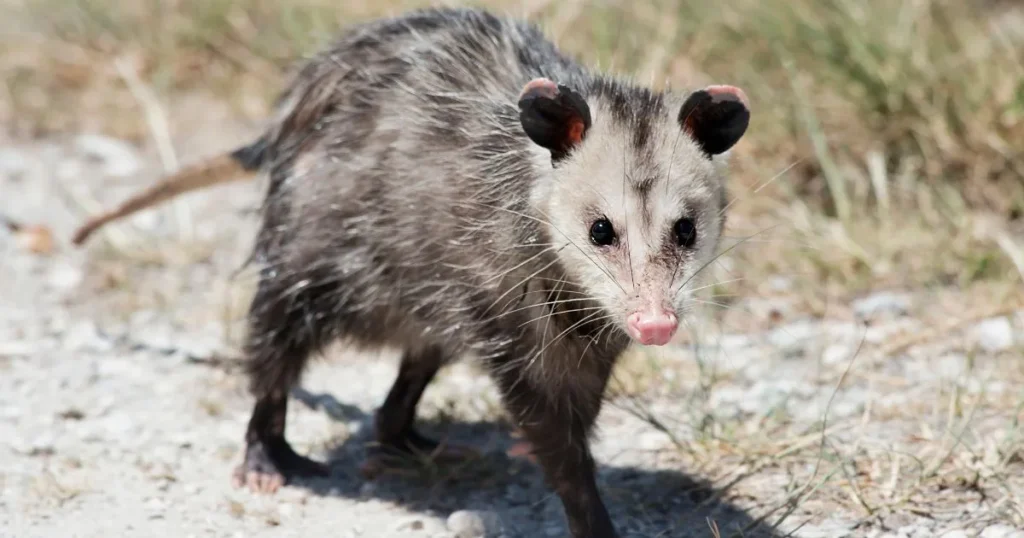
Opossums are generally known to be nocturnal animals, meaning they are most active during the night. They are equipped with several adaptations that help them navigate and hunt in the dark. For instance, their eyes are well adapted to low light conditions, and they have an excellent sense of smell that helps them locate prey.
During the night, opossums are known to forage for food, mate, and defend their territory. They are recognized for their opportunistic feeding behavior, which means they will eat almost anything they come across, including insects, fruits, and small animals.
While opossums are primarily nocturnal, there is some possibility of seeing an opossum in the daytime. There are several reasons why opossums might be active during the day. For instance, they might be searching for food or water, or they might be trying to escape predators.
Another reason why opossums might be active during the day is that they might be sick or injured. In such cases, opossums might not have the energy to forage for food during the night, and they might be forced to search for food during the day.
It's also important to mention that opossums are generally considered to be calm creatures, and they are not aggressive towards humans or other animals. Therefore, if you come across an opossum during the day, it is advisable to leave it alone and let it go about its business.
In conclusion, opossums are primarily nocturnal animals, but they might be active during the day for several reasons. If you come across an opossum during the day, it is advisable to leave it alone and let it go about its business.
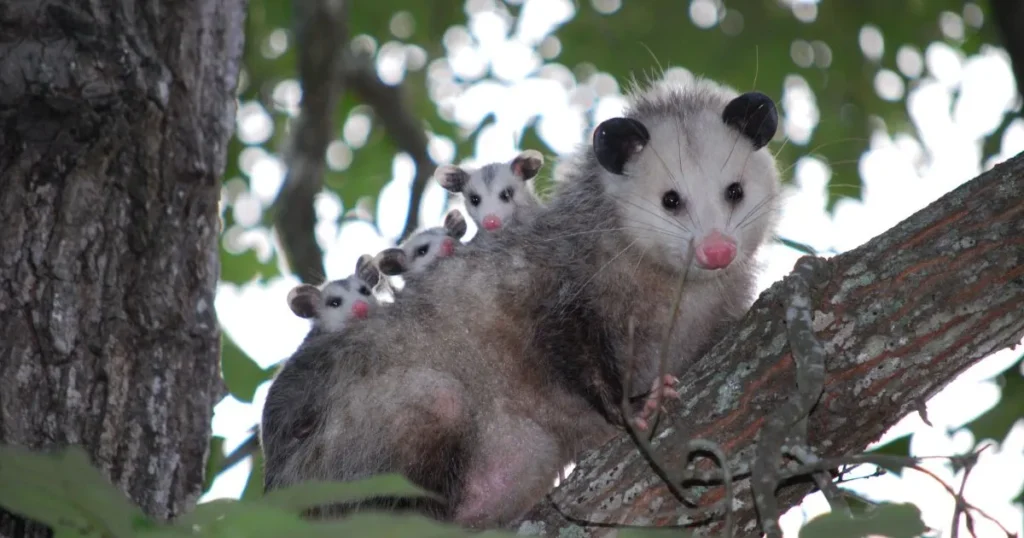
Opossums are known to be nocturnal, meaning they are most active at night. However, it is not uncommon to see opossums out during the day. While some may assume that seeing an opossum during the day is a sign of illness or disease, this is not always true.
In fact, opossums are generally healthy animals and are not typically carriers of diseases that can be transmitted to humans. However, if you encounter an opossum during the day, keeping your distance and avoiding contact with the animal is important.
There are several reasons why opossums may be out during the day. One of the most common reasons is seasonal behavior. During the spring and summer, opossums might exhibit increased activity during daylight hours while they hunt for food and suitable nesting spots.
Another reason opossums may be out during the day is habitat loss. As urbanization encroaches on natural habitats, opossums may be forced to adapt to new environments and adjust their behavior accordingly.
While it may be unusual to see an opossum out in daylight, it is not necessarily a cause for concern. By understanding these animals' seasonal behavior and habits, you can better appreciate their role in the ecosystem and coexist peacefully with them.
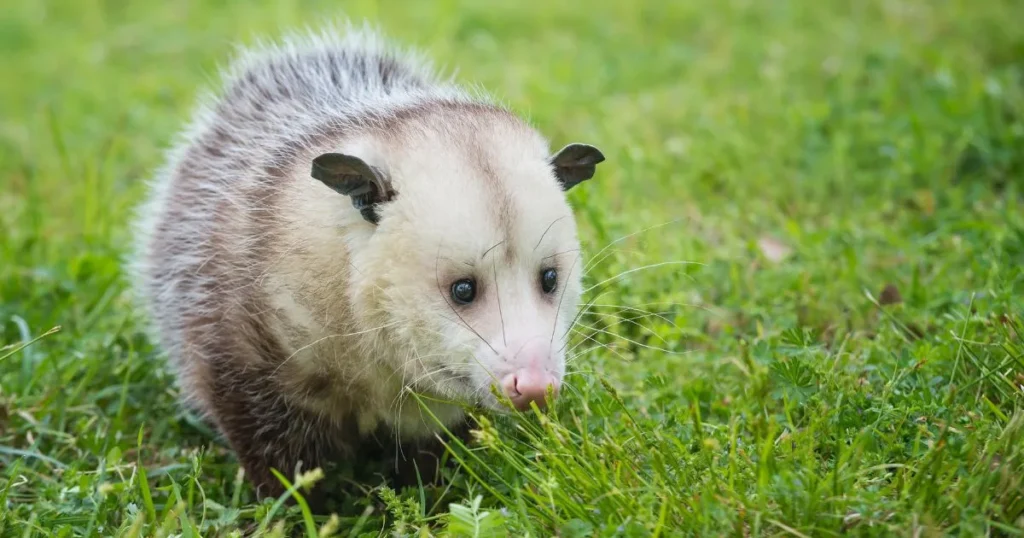
Opossums are known for their adaptability and can thrive in diverse environments, such as forests, grasslands, and urban regions. However, habitat disruption caused by human activities can significantly impact their behavior. When their natural habitat is destroyed or altered, opossums may be forced to seek shelter and food in unsuitable areas, potentially resulting in increased opossum daytime activity.
For example, construction projects, deforestation, and urbanization can all destroy opossums' natural habitat. In such cases, opossums may be forced to venture into residential neighborhoods seeking sustenance and refuge. This can result in increased sightings of opossums during the day, as they may be more active in their search for food and shelter.
Food scarcity is another environmental factor that can affect opossum behavior. Opossums are flexible eaters who consume various foods like insects, fruits, and small creatures. However, when food is scarce, opossums may be forced to search for food during the day, when they are more vulnerable to predators.
Food scarcity can be caused by various factors, including drought, habitat destruction, and competition from other animals. In urban areas, opossums may also face competition from other scavengers, such as raccoons and squirrels, which can reduce food availability.
In conclusion, environmental factors such as habitat disruption and food scarcity can significantly impact opossum behavior. When their natural habitat is destroyed or altered, opossums might be compelled to search for sustenance and refuge in unsuitable environments, resulting in heightened daytime activity.. Similarly, food scarcity can also increase daytime activity since opossums might have to hunt for food during daylight hours when they are more susceptible to predators.
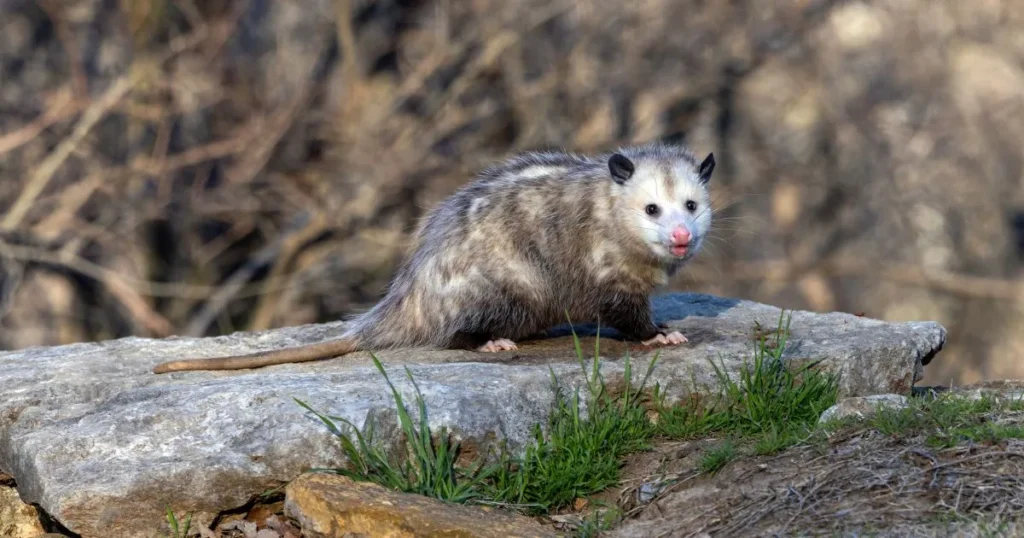
Opossums are creatures of the night, meaning they are active after sundown and rest during the day. It is normal to see an opossum out in daytime if it is searching for food or water. However, if you see an opossum walking in circles daylight, it may be a sign of neurological damage and should be reported to animal control.
If an opossum is out during the day and shows signs of distress, such as panting or drooling, it may suffer from heat exhaustion. Opossums struggle to regulate their body temperature effectively and are prone to overheating. It is important to provide water and shade for the opossum and contact animal control if it appears distressed.
Opossums are not common carriers of rabies, but they can contract the disease. Signs of rabies in opossums include disorientation, aggression, and foaming at the mouth. If an opossum exhibits these symptoms, avoiding it and contacting animal control immediately is important.
Overall, it is important to observe an opossum's behavior to determine whether it is normal or abnormal. If an opossum is out during the day and appears distressed or exhibiting unusual behavior, it is important to contact animal control for assistance.
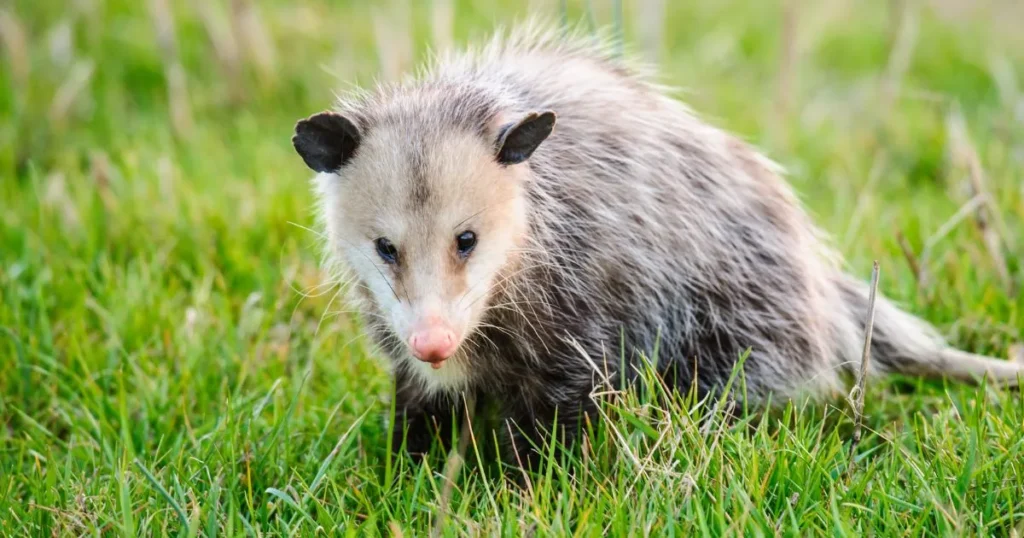
As urbanization encroaches on wildlife habitats, it is not uncommon to see opossums in residential areas. Opossums are nocturnal animals, though it's not uncommon to spot them during daylight hours, particularly when they're foraging for food or water.
Opossums are generally non-aggressive and pose little threat to humans. Yet, if they sense danger or are trapped, they may exhibit defensive actions like hissing or displaying their teeth. It's crucial to grant them room and refrain from direct interaction.
If you encounter an opossum, keep your distance and do not attempt to touch or handle them. It's vital to keep in mind that they are wild creatures and could harbor diseases like leptospirosis or salmonella
To prevent opossums from entering your property, securing trash cans and compost bins is advisable, as opossums are drawn to food reservoirs. Moreover, sealing any access points into your residence, like openings in the roof or walls, can deter opossums from making nests indoors.
If you encounter an injured or unwell opossum, it's best to seek help from a wildlife rehabilitation center or animal control agency. These centers possess the knowledge and tools to safely manage and care for the creature.
In conclusion, while opossums may be seen during the day, they are typically harmless and fulfill a crucial role in the ecosystem. By taking simple precautions and respecting their space, humans and opossums can coexist peacefully.
Efforts for conservation have been implemented to safeguard the opossum population and their habitats. The International Union for Conservation of Nature (IUCN) has categorized the opossum as a species of "least concern", but their populations are still vulnerable to habitat destruction and fragmentation.
To protect opossums, conservationists have focused on preserving and restoring their habitats. This involves safeguarding forests, wetlands, and other natural habitats that opossums depend on for sustenance and refuge. Additionally, efforts have been made to reduce the impact of human development on opossum habitats, such as limiting deforestation and reducing the use of pesticides.
To create a safe environment for opossums, individuals can take simple steps to reduce the risk of harm to these animals. This includes securing garbage cans and compost bins to prevent opossums from scavenging for food in residential areas. Additionally, pet owners should keep their pets indoors at night to reduce the risk of conflicts with opossums.
It's also crucial to refrain from using pesticides and other harmful chemicals in regions inhabited by opossums. These substances can directly harm opossums or indirectly diminish the availability of their food sources.
Overall, protecting opossums and their habitats is crucial to ensuring the survival of these unique animals. By taking simple steps to reduce human impact on their habitats and create a safe environment, individuals can help preserve opossum populations for future generations.
If you encounter an opossum during the day, it may be cause for concern. While opossums are nocturnal animals, seeing them during the day is common. However, it's important to take action if you notice an opossum that appears injured or distressed. Calling an opossum removal Dallas service might be in order.
If you encounter an injured or distressed opossum, it's advisable to contact a wildlife rehabilitation center. These centers are equipped to care for injured or orphaned wildlife and can provide the necessary medical attention and care to help the opossum recover.
If the opossum is not injured but is causing a nuisance, it's important to contact a professional wildlife removal service. Critter Stop is a reputable wildlife removal service that can safely and humanely remove the opossum from your property.
It's important never to attempt to handle or remove an opossum yourself, as they can be carriers of diseases. Always seek professional assistance to ensure your and the opossum's safety. Contact us at (214) 234-2616 if you want more information.
It is not uncommon to see an opossum during daylight hours. While they are primarily nocturnal animals, opossums may come out during the day to search for food or water.
Yes, opossums can come out during the day. They are recognized as opportunistic feeders and might venture out during daylight hours in search of food or water.
Not necessarily. While it is true that opossums are more likely to be active at night, their presence during the day does not necessarily indicate illness or rabies. However, if an opossum is exhibiting unusual behavior, such as stumbling or appearing disoriented, it may be a sign of illness or rabies.
Opossums may come out during the day for a variety of reasons, such as searching for food or water, or to escape predators. They're acknowledged as opportunistic feeders and will consume a diverse array of foods, such as insects, fruits, and vegetables.
While opossums can carry rabies, they are less likely to contract and transmit the disease than other wild animals such as raccoons, skunks, and bats. Opossums possess a lower body temperature compared to most mammals, which makes it challenging for the rabies virus to persist in their bodies.
Opossums are known for their ability to adapt to a variety of environments. They may reside in a variety of places when they are not active at night, including trees, burrows, or other sheltered areas. They may also seek refuge in abandoned buildings or other man-made structures.
Visit our Critter Library and learn more about our furry friends